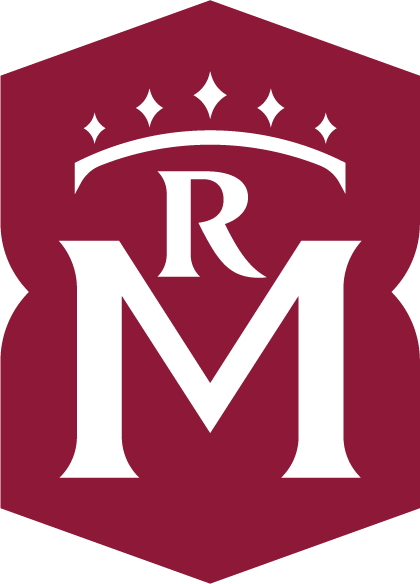“To St. Benedict, then...let me assign, for his discriminating badge, the element of Poetry; to St. Dominic, the Scientific element; and to St. Ignatius, the Practical.”
Inspired by Cardinal Newman’s idea of Catholic education for modern times, which synthesizes the educational insights of St. Benedict, St. Dominic, and St. Ignatius, our curriculum aims at retrieving personalized liberal learning for all.
Regina Mater provides a primary Montessori environment for preschool and kindergarten. Elementary, middle school, and high school blend Montessori philosophy with liberal learning in the Catholic tradition. See an overview of our scope and sequence here.
Regina Mater’s Golden Curriculum: A Program of Personalized Liberal Learning for All
PK3-12 Framework
Poetic LEARNING
Poetic learning is grounded in philosophical realism. It affirms sensory-emotional, concrete experience as the basis for higher-order thinking. (See James S. Taylor, Poetic Knowledge.) The poetic approach respects the Christian understanding of the human being as a body-soul unity made in the image of God, and therefore prioritizes living contact with family, nature, community, and tradition.
Piety
Piety builds the habits of prayer and sacramental living, inculturation in the Catholic community and communion of saints.
Marian Devotion: home and school daily consecration to the Blessed Mother, celebration of Marian feasts
Lives of the Saints: home and school readings, prayers, and hands-on activities surrounding the saints
Liturgical Year: school-day and whole-family celebrations from our global Catholic heritage (St. Martin’s Day, St. Nicholas Day)
Mass and Confession: weekly and monthly school masses, confession on school days
Adoration: close proximity to the Blessed Sacrament and little visits to the chapel on class days
Retreats: family and high school days of reflection
Option for the Poor: family outreach with Little Angels Service Project, St. Vincent de Paul Society, John Paul II Life Center, Community! First
Liberal Arts & Skills
The liberal arts and skills cross through the letters, sciences, fine and practical arts. They roughly equate to the trivial and quadrivial arts. Students develop the liberal arts through imitation and coaching.
Grammar: the art of reading signs. Includes the language arts, literature, history, religion, Latin.
Shared Inquiry and Dialectics: Socratic dialogues and seminars, inquiry-based science and math. Estimate and judge right and wrong; truth and falsehood.
Public Speaking and Rhetoric: ideal of the vir bonus dicendi peritus, the good man speaking well. Confident writing through narration and formal composition.
Mathematics: understanding math as a language of the cosmos.
Aesthetics or Harmony: habituating the senses to what is beautiful and true (astronomy, music).
Letters & Sciences
Letters and sciences form the “content” or “object” of the liberal arts. Students are exposed to a wide and generous survey of the humanities and humane sciences.
Bible: Old Testament Narratives, Psalms and Prophets, Gospels, Letters
Catechism: Systematic, Christology, Church and Sacraments, and Moral Theology
Literature: Ancient, Medieval, American, and World; folktales, fairytales, myths, and novels.
Poetry: British and American classics for children, classic devotional poetry
Shakespeare: adaptations and soliloquies, full plays
History & Geography: divine providence in Ancient, Medieval, American, and World eras; seeds of God in all times and places. Primary documents and Catholic authors.
Philosophy: Socratic seminar, Platonic dialogues, Aristotle, St. Thomas.
Natural Science: inquiry-based science and nature study.
Fine Arts
The fine arts are incorporated into the humanities block and morning time at home.
Picture Study: European, American, World
Great Composers: Early, Renaissance, Baroque, Classical, Romantic, Modern, Jazz
Visual Arts: clay, drawing, painting, mosaics, iconography
Choral Singing: Gregorian chant, hymnody, folk songs
Common Arts
The common arts are incorporated into the humanities block, outdoor school, and special events.
Trade: Market Day, Christkindlmarkt
Handicrafts: gardening, carpentry, homemaking, calligraphy, textiles
STEM: coding, robotics
Grace & Courtesy
Grace and courtesy are Montessori standards for caring about the classroom environment and each other.
Hospitality: greeting adults and visitors. Welcoming and inviting others.
Manners: table manners, professional etiquette.
Classroom Jobs: expectations to keep spaces clean and tidy
Gymnastic
Gymnastic is the care and wise use of the body. Maria Montessori observed the developmental need for children to move and learn self-control through movement.
Outdoor Games: during the school day, playing PE games incorporated with history
Free Play: unstructured time at Maryhill to build forts, make trails, toss balls
Sports: encouraging the community to sign up together for clubs, recreational leagues, and informal outings (past examples: flag football, golf, swim, kickball, lacrosse)
Ecology
Learning about ecological order nurtures respect for the family and the human body.
Nature Study: observing and identifying nature throughout the seasons
Land Projects: improving Maryhill through eradicating invasives and planting native seeds
Cura Personalis
The “care of the person” as an Ignitian ideal means developing the unique gifts of each person for the service of God.
Life Design: using design principles to become an “entrepreneur” of one’s vocation
Leadership: taking on roles and responsibilities in the classroom; learning from biographies and classic texts
